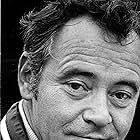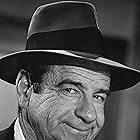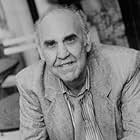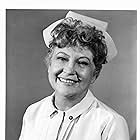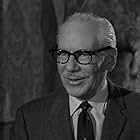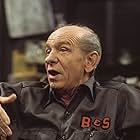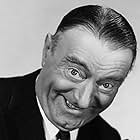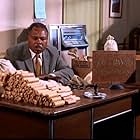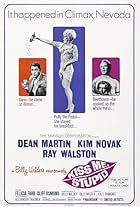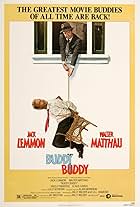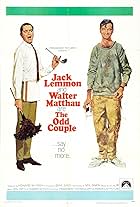A crooked lawyer persuades his brother-in-law to feign a serious injury.A crooked lawyer persuades his brother-in-law to feign a serious injury.A crooked lawyer persuades his brother-in-law to feign a serious injury.
- Won 1 Oscar
- 3 wins & 5 nominations total
- Director
- Writers
- All cast & crew
- Production, box office & more at IMDbPro
Storyline
Did you know
- TriviaProduction was halted for weeks after Walter Matthau had a heart attack. He had slimmed from 190 to 160 pounds by the time filming was completed and wore a heavy black coat to conceal the weight loss.
- GoofsDuring the football game in which Harry is injured, the Browns are playing the Minnesota Vikings. On Boom-Boom's punt return, however, the opponents are the Philadelphia Eagles.
- Crazy creditsThe end credits conclude with a thank you message to the players and management of the Cleveland Browns, and the National Football League for their cooperation.
- Alternate versionsThe 1997 VHS release showed black and white versions of the 1994 United Artists variant and MGM logo at the start and end of the movie respectively.
- ConnectionsFeatured in AFI Life Achievement Award: A Tribute to Billy Wilder (1986)
- SoundtracksYou'd Be So Nice to Come Home To
Music and lyrics by Cole Porter
Sung by Judi West
Also strains played throughout the movie
Featured review
Whereas these days a successful movie series means endless spin-offs and sequels, there was a time when there were brilliant creative teams who got together time and again, producing a kind of motion picture brand that you could trust. The series of comedies written by Billy Wilder and I.A.L. Diamond, directed by Wilder and (many of them) starring Jack Lemmon are such neat works of professionalism and congruent talent that during their heyday in the 1960s they provided a guarantee of smoothly intelligent yet undemanding entertainment.
Billy Wilder had one of the most apparently laid back directorial styles of his era. He barely moves the camera, and his shots tend last as long as is practical. But within this fixed frame he juggles everything with expertise. He uses the cinemascope ratio to keep various elements on the screen – for example the camera and microphones which keep stealing into shot as a reminder of the private eyes that are bugging the flat. This idea of keeping things in view without making them centre of attention also applies to Wilder's presentation of comedy. There's a great example where Walter Matthau is on the phone at one edge of the frame, while the rest of the screen reveals the interior of his home. His children skate around while his wife prepares dinner, which culminates in an incidental gag, punctuating the scene, while Matthau's phone conversation remains what the scene is about. This is very much Wilder's way – not to make the jokes leap out at you but to weave them into the background, noticeable but never forced.
Lead man Jack Lemmon was by now a familiar piece of Wilder furniture, and you can see why. He has a slightly exaggerated look, with a duck-like face and a manic way of moving, and yet he can also "do normal" and convince us that he is an everyman. Still, this time around he is upstaged by an exuberant Walter Matthau. There are many great facets to Matthau's performance – his sudden overt gestures, his ability to move his hat as if it were part of his body, the way he paces around, managing to get closest to the camera as his voice reaches a bizarre crescendo or his facial expression is at its most absurdly comical. However I think what really makes him fit in here is the way, although he gets all the funniest lines, he doesn't show them off, simply delivering them as if they were the natural thing for his character to say, which of course makes them all the funnier. It's also a lot like Wilder's style of weaving the comedy into the narrative material rather than hammering the jokes home.
But what about this narrative material, sharply scripted by Wilder and Diamond? The Fortune Cookie is ostensibly about an insurance scam, but gradually the friendship between Jack Lemmon and the football player who accidentally injured him emerges as the main story arc. It's almost like a love story between two men. I'm not implying anything homoerotic here, simply that the story is structured like a romance with a friendship taking the place of the love angle. The fact that Boom Boom (played by the little-known Ron Rich) is black is not drawn attention to or made an issue of, and this is rather interesting. This picture was made at the height of the civil rights movement, but it is not making an overt point about race, nor is it even a political picture. But it works as a nicely harmonious accompaniment to what was going on in the streets at the time. Wilder comedies could calmly cover areas other pictures couldn't even touch without making a mess.
Billy Wilder had one of the most apparently laid back directorial styles of his era. He barely moves the camera, and his shots tend last as long as is practical. But within this fixed frame he juggles everything with expertise. He uses the cinemascope ratio to keep various elements on the screen – for example the camera and microphones which keep stealing into shot as a reminder of the private eyes that are bugging the flat. This idea of keeping things in view without making them centre of attention also applies to Wilder's presentation of comedy. There's a great example where Walter Matthau is on the phone at one edge of the frame, while the rest of the screen reveals the interior of his home. His children skate around while his wife prepares dinner, which culminates in an incidental gag, punctuating the scene, while Matthau's phone conversation remains what the scene is about. This is very much Wilder's way – not to make the jokes leap out at you but to weave them into the background, noticeable but never forced.
Lead man Jack Lemmon was by now a familiar piece of Wilder furniture, and you can see why. He has a slightly exaggerated look, with a duck-like face and a manic way of moving, and yet he can also "do normal" and convince us that he is an everyman. Still, this time around he is upstaged by an exuberant Walter Matthau. There are many great facets to Matthau's performance – his sudden overt gestures, his ability to move his hat as if it were part of his body, the way he paces around, managing to get closest to the camera as his voice reaches a bizarre crescendo or his facial expression is at its most absurdly comical. However I think what really makes him fit in here is the way, although he gets all the funniest lines, he doesn't show them off, simply delivering them as if they were the natural thing for his character to say, which of course makes them all the funnier. It's also a lot like Wilder's style of weaving the comedy into the narrative material rather than hammering the jokes home.
But what about this narrative material, sharply scripted by Wilder and Diamond? The Fortune Cookie is ostensibly about an insurance scam, but gradually the friendship between Jack Lemmon and the football player who accidentally injured him emerges as the main story arc. It's almost like a love story between two men. I'm not implying anything homoerotic here, simply that the story is structured like a romance with a friendship taking the place of the love angle. The fact that Boom Boom (played by the little-known Ron Rich) is black is not drawn attention to or made an issue of, and this is rather interesting. This picture was made at the height of the civil rights movement, but it is not making an overt point about race, nor is it even a political picture. But it works as a nicely harmonious accompaniment to what was going on in the streets at the time. Wilder comedies could calmly cover areas other pictures couldn't even touch without making a mess.
- How long is The Fortune Cookie?Powered by Alexa
Details
- Release date
- Country of origin
- Language
- Also known as
- Der Glückspilz
- Filming locations
- Cleveland, Ohio, USA(Roswell Hotel-opp. Hinkle's apt East 20th St between Euclid and Chester Avenues, now a part of the Cleveland State University campus.)
- Production companies
- See more company credits at IMDbPro
Box office
- Budget
- $3,705,000 (estimated)
- Runtime2 hours 5 minutes
- Color
- Aspect ratio
- 2.35 : 1
Contribute to this page
Suggest an edit or add missing content












